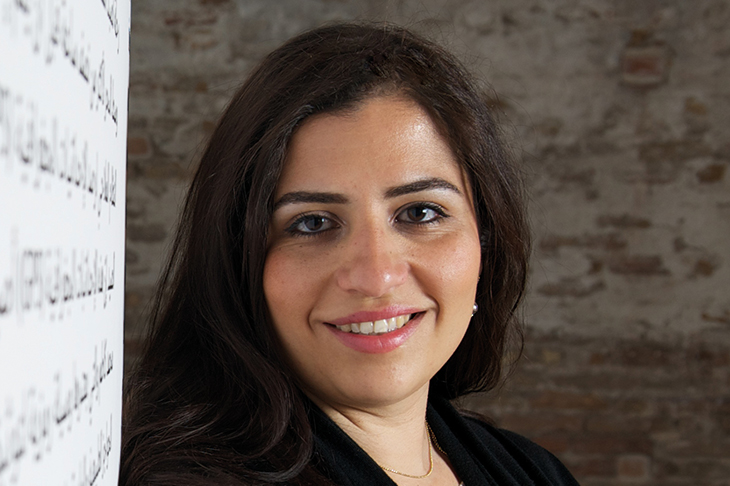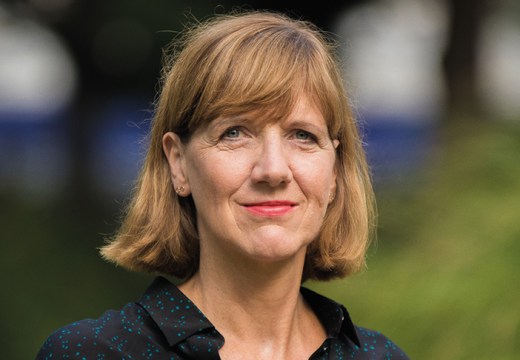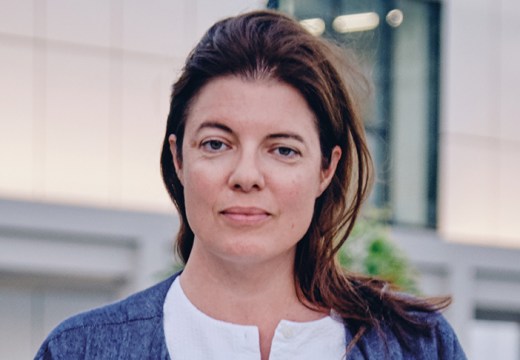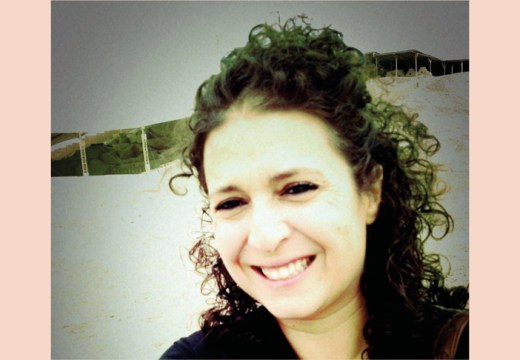Director, Abu Dhabi Cultural Foundation, Abu Dhabi
Reem Fadda is relishing getting to grips with her new role. The Palestine-born curator takes the reins in autumn 2019 at the Abu Dhabi Cultural Foundation, the emirate’s first multi-purpose arts and community centre which opened its doors in 1981. The venue, located next to the historic White Fort in downtown Abu Dhabi, sets off waves of nostalgia in Abu Dhabi’s citizens.
‘It has such a history and is anchored to the place, it was very much a gathering hub. People tell me they attended their graduation ceremonies in the theatre there, for instance,’ Fadda says. The centre reopened in December 2018 after a ten-year refurbishment. Fadda is working on a far-reaching programme that will ‘speak to a local audience, the larger region and also extend, with an international focus’, she says, before adding, ‘We are also opening a career survey of Najat Makki, one of the pioneering women artists of the UAE, within the main hall of the Cultural Foundation. She used fluorescent paint from the mid-80s in her painting. Many of her paintings are meant to be seen with black light. We are hanging works from the ceiling; it will be spectacular!’
Fadda has always been interested in institution building, having been an integral part of the Guggenheim Abu Dhabi project for six years (she was associate curator, 2010–16). The blockbuster museum initiative was first announced in 2006 but construction has not yet begun on the 42,000 square metre satellite on Saadiyat Island. ‘I was largely involved in the collection-building process and the curatorial narrative, and I can tell you that it’s cutting edge,’ she says enthusiastically.
‘You had carte blanche to build something that is unmatched in any Western museum. It was about establishing conversations from new angles, so for me it was a defining moment.’ Works by Hassan Sharif, Mohammed Kazem and Ebtisam Abdulaziz entered the collection under her watch. Fadda points out that Islamic art ‘is the art of the living, it has contributed to contemporary language today’, reflecting how she wants to change our ways of seeing.
Fadda has never shied away from bringing a socio-political framework to her curatorial projects, organising important, punchy shows such as ‘Jerusalem Lives’ at the Palestinian Museum in Birzeit in 2017. The exhibition, which explored the idea of ‘collective resistance’, included site-specific works by 18 Palestinian and international artists including Emily Jacir and Khaled Hourani. ‘For me, the city is forsaken and that means death for a city. If people’s lives are not cherished, how do you factor in a living city? But the exhibition landed on deaf ears and it is painful for me to say that,’ Fadda explains.
Her optimism, against the backdrop of today’s turbulent political climate, is striking. ‘I want to be free with my ideas, and I want to be free to dream. I will do my part and if a larger collective of people does its part, then we can be hopeful. If we join forces with people in London, for example, we can break the tyranny of isolationism and racism,’ she says.
Fadda’s CV is loaded with weighty professional achievements. She spent her formative years in London, gaining a masters in curating at Goldsmiths, University of London. Frustrated with the lack of art schools offering degrees in the visual arts, she became director of the Palestinian Association for Contemporary Art (2005–07), progressing to academic director for the International Academy of Art Palestine, an organisation now affiliated with Birzeit University. ‘The [university] move makes sense long-term but sadly the academy has lost its independence,’ she says.
In 2016, she curated the sixth edition of the Marrakech biennale, focusing on our ‘obsession with the new’ under the exhibition title and thesis ‘Not New Now’, looking at the ‘legacy of time as a continuum, not as progress but continuity’. Or, as she eloquently told the online journal for Art Bahrain: ‘We find ourselves caught either between the nostalgia of the past or running towards a future we barely grasp.’ Participating artists included Superflex and Sara Ouhaddou.
In the next few years, Fadda’s ambitious, scholarly long-term plans and ideas should transform the status of the Abu Dhabi Cultural Foundation. ‘We really want to make the foundation a place for production of knowledge; a new department for research and publications is also planned. We really want to conduct historical research that will address the gaps in information relating to art movements and artists in the extended region, beyond the UAE.’
Gareth Harris
See more 40 Under 40 Middle East Thinkers
Unlimited access from just $16 every 3 months
Subscribe to get unlimited and exclusive access to the top art stories, interviews and exhibition reviews.








